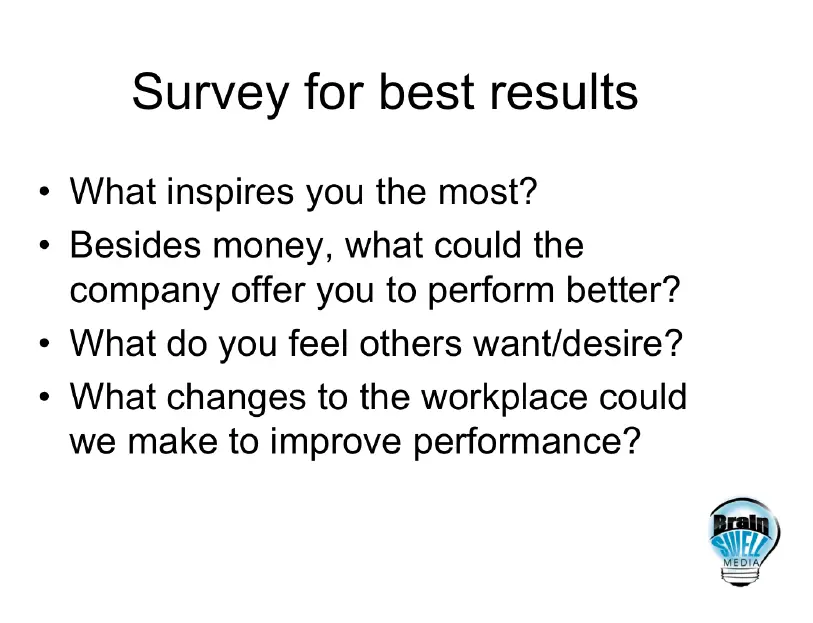Every publisher and small business owner knows that sales are the lifeblood of any capitalistic operation. No matter what the content or informational quality of one’s business, if one ceases to properly sell their product or service, they will eventually succumb to debt and be labeled unvalued. Of course, most businesses today spend vast amounts of time and effort training sales people on the ins and outs of their developed sales process, but what does one do to continue improving and gaining momentum after one’s team has mastered the basics? How long is simple monetary gain enough to keep a sales team motivated?
Here Shweiki Media teams up with Ryan Dohrn—an author, advisor, speaker and the founder of Brain Swell Media and 360 Ad Sales—to present a webinar on must-know ways for businesses to motivate their sales team.
Create a Motivational Survey
The first step for motivating one’s sales team–and ultimately achieving sales success–is to get their perspective on what drives them. One phrase to consider involves the “three P’s”: People are more Passionate when they are involved in the Process. Too often management abides by their own viewpoint, and sometimes employees’ opinions can get lost in translation. Even with good intentions, bosses often come up with incentives that, while they may seem like a good idea, aren’t important to the individuals they’re trying to inspire. Getting the employees’ perspective on what drives them is a good way to ensure they’ll be motivated
One technique that can be used to ensure an in-depth knowledge of one’s sales team’s motivations is to create a survey asking them for insight about things that inspire them or “others” the most. One wouldn’t guess it, but it turns out that, often, time is the biggest incentive for most sales people.

Hire a Motivational Speaker

One might wonder why they should hire a motivational speaker, coach or consultant who is simply saying the same thing that they’ve been saying—but the truth is that this tactic works! A good way to think about it is, in this situation, to equate the boss-employee relationship to a parent-child relationship. Parents can tell their child to do something ten times without success, but often when a stranger or someone else tells them to do the same thing, they’ll do it right away. It’s simply psychology, and the same type of thing happens when those “strangers” are motivational speakers, coaches and experts. It just works.
Margin and Incentives

When looking at margins to decide incentives, it is crucial for one to check one’s highest margin area (where one wants to see the biggest increase) and set bonus plans accordingly. When one has high margins and a great need to fill, they can allot the extra revenue space to their sales team (while providing instant motivation) and consequentially fill that need.
Create a Group Contest
One good strategy is to look for ways in which people aren’t judged by their individual performance but the group is judged overall by their total performance. There shouldn’t be a focus on losses vs. wins; there should just be a focus on wins. For example, if the collective group accomplishes something—say 10 “wins”—everyone receives x, but the person who had the most out of that group gets y.
This contest highlights the effort of the group. It could come off unfair in some cases because the weakest link will technically get credit for a group win, but that objection is simply bypassed by giving the top seller another bonus prize. Contest success lies in motivation (after all, that’s why one created the contest in the first place), and if one feels as if he/she is out of the race when other surpass them, their motivation level could potentially drop as a result. But when one is working in a team environment and contributing as part of a group, it allows the group to support each other through hot and cold streaks.
Click here to watch the webinar now!







